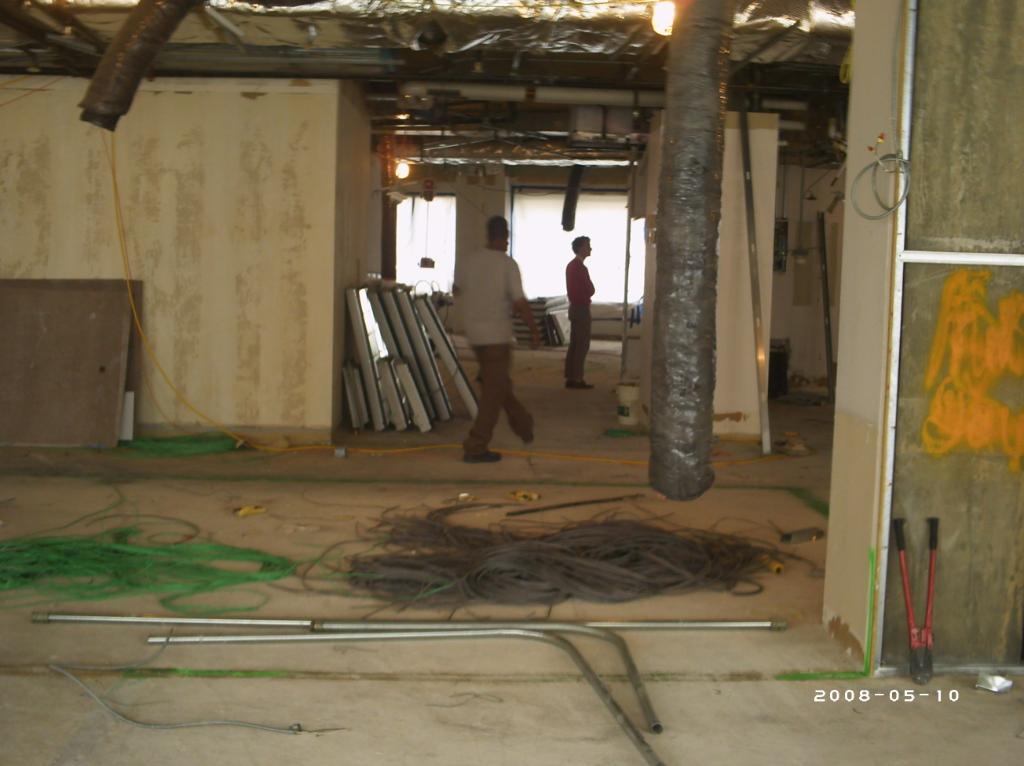
Is it Time to Upgrade Your Network Infrastructure?
 Your company will need to upgrade because network traffic is rising dramatically due to the rapid increase in the number of devices and videos online. By 2020, the number of devices will approach an estimated 12 billion. The following are reasons why you should contact an expert and experienced structured cabling support team to evaluate and improve your network infrastructure.
Your company will need to upgrade because network traffic is rising dramatically due to the rapid increase in the number of devices and videos online. By 2020, the number of devices will approach an estimated 12 billion. The following are reasons why you should contact an expert and experienced structured cabling support team to evaluate and improve your network infrastructure.
High Maintenance
The addition of the latest technology often stresses aged infrastructure, resulting in more downtime and troubleshooting. This increased time and effort devoted to this task prevents your IT support from working on implementing innovative solutions that may increase productivity or decrease costs, slowing your company’s growth. Installing up-to-date infrastructure will decrease maintenance and increase deployments.
Inadequate Security
Cybercrime is growing ever more prevalent and complex. Hackers tend to avoid networks with strong security and target those with weak protection. Older network infrastructure will have more and greater vulnerabilities. Modern network solutions now feature intelligent sensors and enforcers, improving security.
Mobile Employees
Today’s workers want the ability to work anywhere and anytime. Unfortunately, aged infrastructure will not be able to cope with new mobile solutions and enterprise cloud applications. In order to maintain and increase employee productivity, a network upgrade replacing obsolete equipment will probably be necessary.
Slow Network
Networks of the past were not designed to meet the current requirements of companies and their workers. Wireless technology now permits employees to work anywhere with wireless access points nearing 7 Gbps, more than 11X faster than the 802.11n standard.
The Competition
A network infrastructure upgrade will allow your company to remain competitive because it will be able to implement the latest solutions that boost productivity and earnings. Powerful applications that would have crashed your old network can now be handled, allowing your organization to keep up with competitors.
Progressive Office Cabling
Founded in 1986, Progressive Office’s success has been a direct result of years of commitment to seeking solutions on behalf of their clients in the Washington, D.C. and New York City areas. Efficiently working together, their teams get cabling installed and operating as fast as possible while minimizing disruption and downtime. Call their toll free number (800) 614-4560 today.
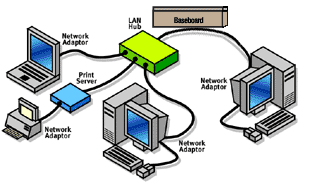
Essential Components for Wired Networks
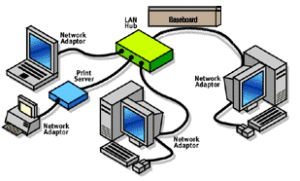 Be sure to purchase the correct components before you install a wired network. The major components consist of the cable, router and network adapters.
Be sure to purchase the correct components before you install a wired network. The major components consist of the cable, router and network adapters.
Cables
You should opt for fast Ethernet or the 100 Base T cable. Ethernet (RJ-45) looks like telephone cables with somewhat thicker wire and jacks. It is also known as Cat 5e or Twisted Pair Ethernet with corresponding speed ratings of 10, 100, and 1,000. Every PC requires a separate network adapter.
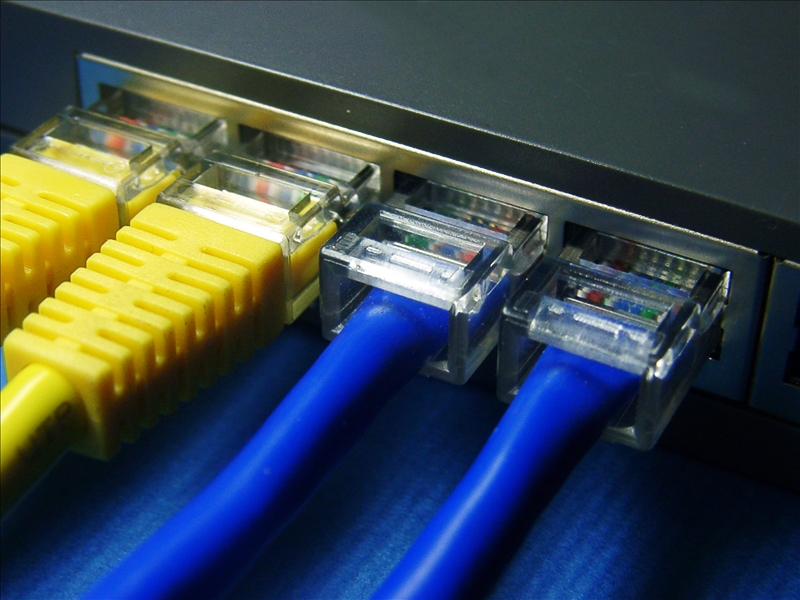
Advantages Of Hard-wired Cabling Over Wireless Networks For Database Applications
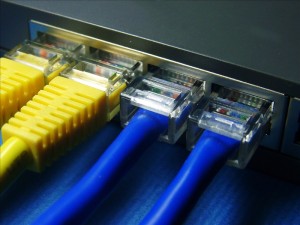 Corporate organizations need to share information efficiently. There are two options for them when it comes to setting up database applications; it is a choice between hard-wired cabling and a wireless network. Wireless systems provide users with more mobility. However, the majority of enterprises prefer the wired model for more control, security, consistency and speed. These are the major upsides of going for physical connections. It is comparatively economical since the cost of cabling, even with the lengths needed to cover a standard office space, is generally cheap.
Corporate organizations need to share information efficiently. There are two options for them when it comes to setting up database applications; it is a choice between hard-wired cabling and a wireless network. Wireless systems provide users with more mobility. However, the majority of enterprises prefer the wired model for more control, security, consistency and speed. These are the major upsides of going for physical connections. It is comparatively economical since the cost of cabling, even with the lengths needed to cover a standard office space, is generally cheap.
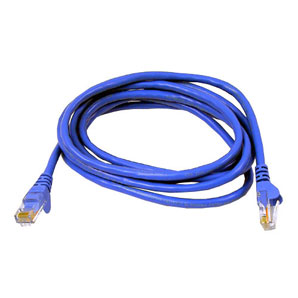
Choosing Between Wired and Wireless Networking for your Home
 Many consumers automatically choose wireless residential networking for the convenience of mobility, but there are a number of other factors that should be considered prior to making your final decision. Things like cost, security, ease of installation and a true measure of the mobility of your home PCs should be taken into account before the important decision is ultimately made.
Many consumers automatically choose wireless residential networking for the convenience of mobility, but there are a number of other factors that should be considered prior to making your final decision. Things like cost, security, ease of installation and a true measure of the mobility of your home PCs should be taken into account before the important decision is ultimately made.
In terms of mobility wireless networking obviously has an advantage over a hard wired network. But how often will that mobility be required to get full, regular use out of your PCs. If the majority of your PCs are of the desktop variety, then you

Hotel Wireless Access Point
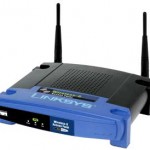 For many years, direct network connections were considered the {{ideal,best,most effective}} service to hotel guests but this has changed as High-Speed Internet Access (HSIA) is becoming a {{standard,expected,typical}} amenity rather than a direct cable connection into the network. But as Wireless Networking is becoming more common, a device called a Wireless Access Point is becoming the standard network communication device enabling HSIA for guests.
For many years, direct network connections were considered the {{ideal,best,most effective}} service to hotel guests but this has changed as High-Speed Internet Access (HSIA) is becoming a {{standard,expected,typical}} amenity rather than a direct cable connection into the network. But as Wireless Networking is becoming more common, a device called a Wireless Access Point is becoming the standard network communication device enabling HSIA for guests.

Wireless Access at Hotel Saves Clients
 I met with the General Manager of a Holiday Inn in Northern Virginia. She manages a 200-unit building in Arlington, Virginia, an affluent suburb of Washington, DC. Her property provides rooms and facilities to handle meetings and conferences for vacationers and business travelers. She told me that she is trying to get wireless access installed into her building because she is losing business and wasting money.
I met with the General Manager of a Holiday Inn in Northern Virginia. She manages a 200-unit building in Arlington, Virginia, an affluent suburb of Washington, DC. Her property provides rooms and facilities to handle meetings and conferences for vacationers and business travelers. She told me that she is trying to get wireless access installed into her building because she is losing business and wasting money.
She said that her hotel is providing free Internet access but her competition is providing free wireless access. Clients and management prefer wireless because it is much easier to manage and access. Clients don't like having to plug in a cable and having to make changes to their network settings to enable network access. Management does not like having to deal with multiple failure points in managing the hundreds of routers spread throughout the building. There is one in each room.
So, they have a lot of complaints about Internet access. It is not convenient. Sometimes clients don't even have a patch cable. So, the problems are overwhelming for both sides. Additionally, they have Meeting and Conference Rooms that are not hard-wired. So, every time they schedule a Conference for a business client they also have to pay their Internet Service Provider (ISP) to extend a bundle of network cables into the Meeting and Conference Rooms. As you can imagine, this is a hassle and a large financial expense. It cuts into their profit margins. And it is also a major inconvenience for both the staff and the customers.
![]() We have presented a proposal to install network cabling and I expect to get approval in the coming weeks. It will save them time, money and reduce their efforts in providing reliable and fast Internet to their clients. I will update this posting as things progress.
We have presented a proposal to install network cabling and I expect to get approval in the coming weeks. It will save them time, money and reduce their efforts in providing reliable and fast Internet to their clients. I will update this posting as things progress.

